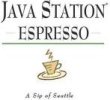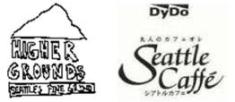Seattle: Home to Coffee (Trademarks)
 It’s true. We Seattlites fancy ourselves as living in the center of the coffee universe. After all, this is home to Starbucks, Seattle’s Best Coffee, and Tully’s, among others. Not surprisingly, the association between Seattle and coffee hasn’t been lost on coffee sellers.
It’s true. We Seattlites fancy ourselves as living in the center of the coffee universe. After all, this is home to Starbucks, Seattle’s Best Coffee, and Tully’s, among others. Not surprisingly, the association between Seattle and coffee hasn’t been lost on coffee sellers.
 A quick search of U.S. Patent and Trademark Office applications for trademark registration shows many remote coffee sellers want to cash in on Seattle’s coffee cache. For instance, just last week the Mississippi-based Seattle Drip Coffee Company obtained a registration for SEATTLE DRIP COFFEE COMPANY and Design for coffee and retail store services featuring gourmet coffee. In 2002, Michigan-based Kroger Co. registered SEATTLE CAFE ROAST and Design for coffee. Seattle Coffee Company, Inc., of Little Rock, Ark., similarly registered ESPRESSLY SEATTLE COFFEE CO. but lost it after Seattle’s Best Coffee Co. (of Seattle) petitioned to cancel the registration.
A quick search of U.S. Patent and Trademark Office applications for trademark registration shows many remote coffee sellers want to cash in on Seattle’s coffee cache. For instance, just last week the Mississippi-based Seattle Drip Coffee Company obtained a registration for SEATTLE DRIP COFFEE COMPANY and Design for coffee and retail store services featuring gourmet coffee. In 2002, Michigan-based Kroger Co. registered SEATTLE CAFE ROAST and Design for coffee. Seattle Coffee Company, Inc., of Little Rock, Ark., similarly registered ESPRESSLY SEATTLE COFFEE CO. but lost it after Seattle’s Best Coffee Co. (of Seattle) petitioned to cancel the registration.
 Another Arkansas company, William J. Giles Inc., applied in April to register BARISTA’S SEATTLE GRIND for restaurant services featuring coffee and desserts. Iowa’s Java Station, LLC, applied to register JAVA STATION ESPRESSO SIP OF SEATTLE and Design, which remains pending today. An individual residing in Dallas, Texas, also recently applied to register SEATTLE BROTHERS for coffee shops and coffee-house and snack-bar services.
Another Arkansas company, William J. Giles Inc., applied in April to register BARISTA’S SEATTLE GRIND for restaurant services featuring coffee and desserts. Iowa’s Java Station, LLC, applied to register JAVA STATION ESPRESSO SIP OF SEATTLE and Design, which remains pending today. An individual residing in Dallas, Texas, also recently applied to register SEATTLE BROTHERS for coffee shops and coffee-house and snack-bar services.
So what about 15 U.S.C. § 1052(e)(2), which bars registration of marks that are “primarily geographically descriptive”? Or Section 2(e)(3), which bars registration of marks that are “primarily geographically deceptively misdescriptive”? The former would seem to apply if the coffee being sold under the mark came from Seattle and the latter would seem to apply if the coffee did not. The Patent and Trademark Office appears to have cited these bars fairly frequently, though not in every case. In one office action, the PTO succinctly stated:
“Registration [of SEATTLE COFFEE COMPANY] is refused because the proposed mark consists of or comprises geographically deceptive and primarily geographically deceptively misdescriptive matter in relation to the identified goods and/or services. …
“The primary significance of the term ‘SEATTLE’ is geographic. The goods do not originate in this geographic location. The public is likely to believe that the applicant’s goods come from this place because Seattle is well-known for coffee. Furthermore, this belief would materially influence consumers to purchase the goods because of the high quality associated with Seattle coffee.”

The PTO’s enforcement of the bar for “primarily geographically deceptively misdescriptive” marks likely played a role in the abandonment of the following applications in connection with coffee:
- SEATTLE SUNRISE (by a Delaware individual),
- SEATTLE COFFEE COMPANY (by a North Carolina individual),
- A CUP OF SEATTLE (by a Colorado company),
- SIP OF SEATTLE (by a Tennessee company),
- HIGHER GROUNDS SEATTLE’S FINE GRIND and Design (By a Virginia company), and
- SEATTLE’S STYLE ESPRESSO (by a Pennsylvania company).
My favorite abandoned SEATTLE coffee application is for DYDO SEATTLE CAFFE and Design by DyDo Drinco, Inc., of Japan. Its mark contains Japanese characters that translate to “Adult’s Milk Coffee Seattle.”
But coffee isn’t just for adults anymore, as Mattel, Inc., illustrates. In 2000, it applied to register SEATTLE LATTE for “doll clothing and doll accessories.” For Seattle coffee drinkers of the future.
Reader Comments